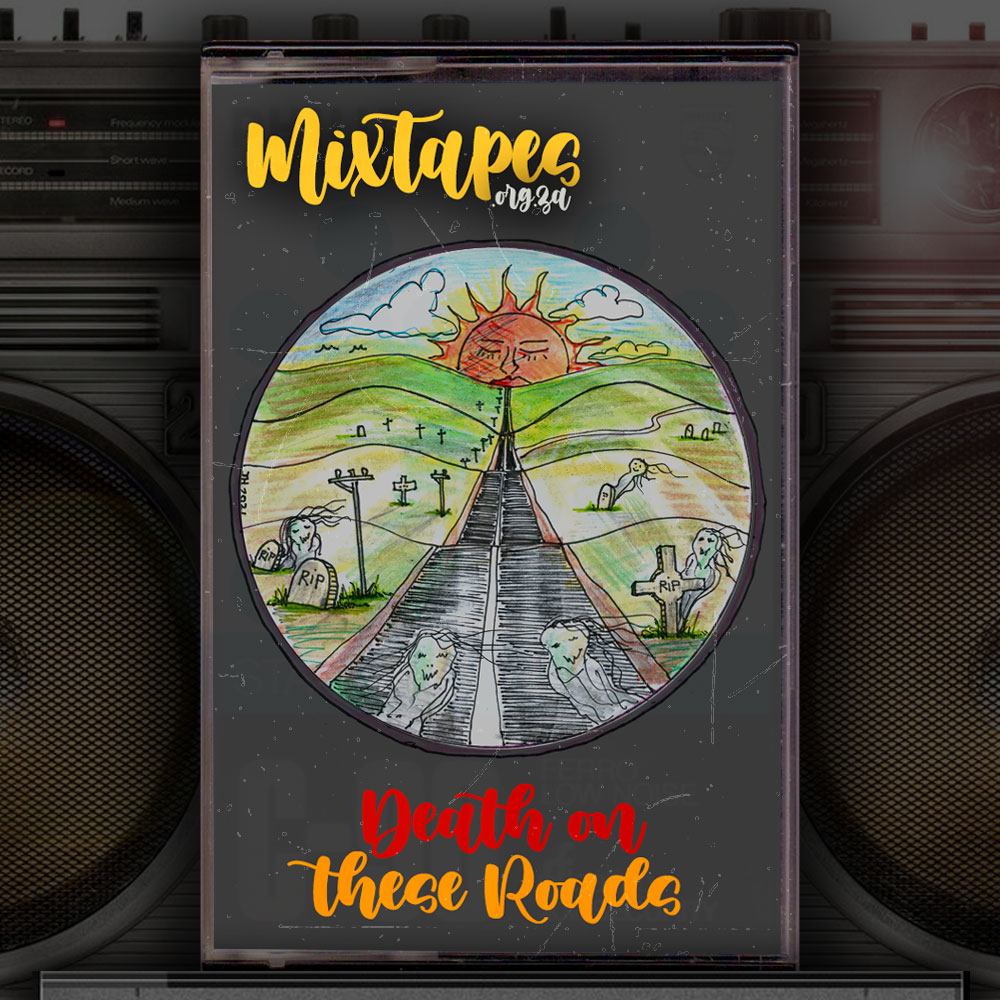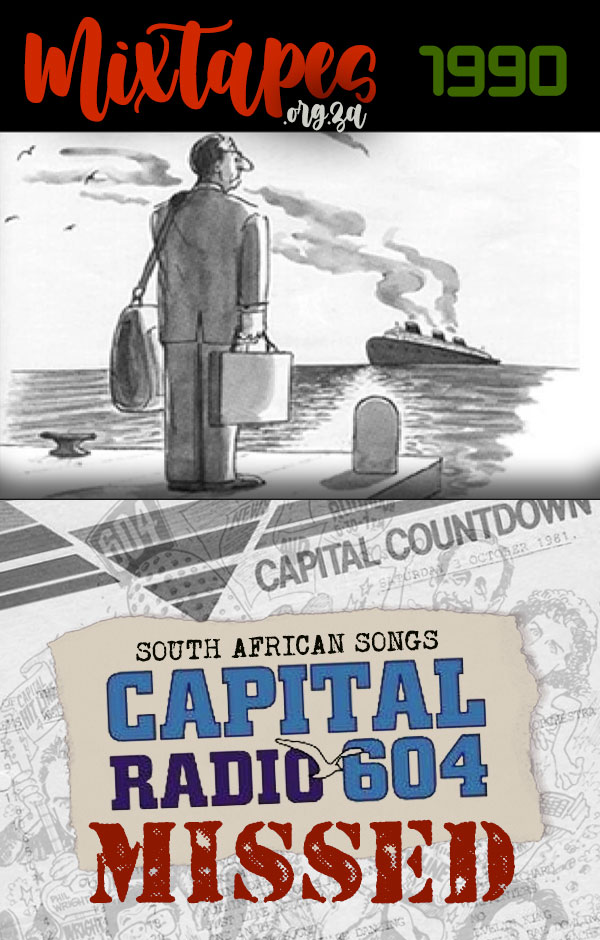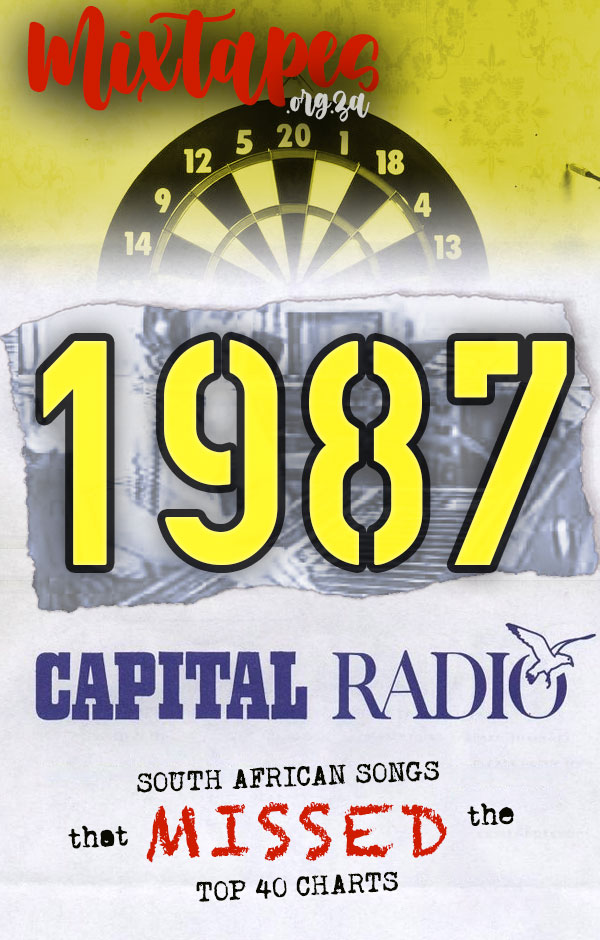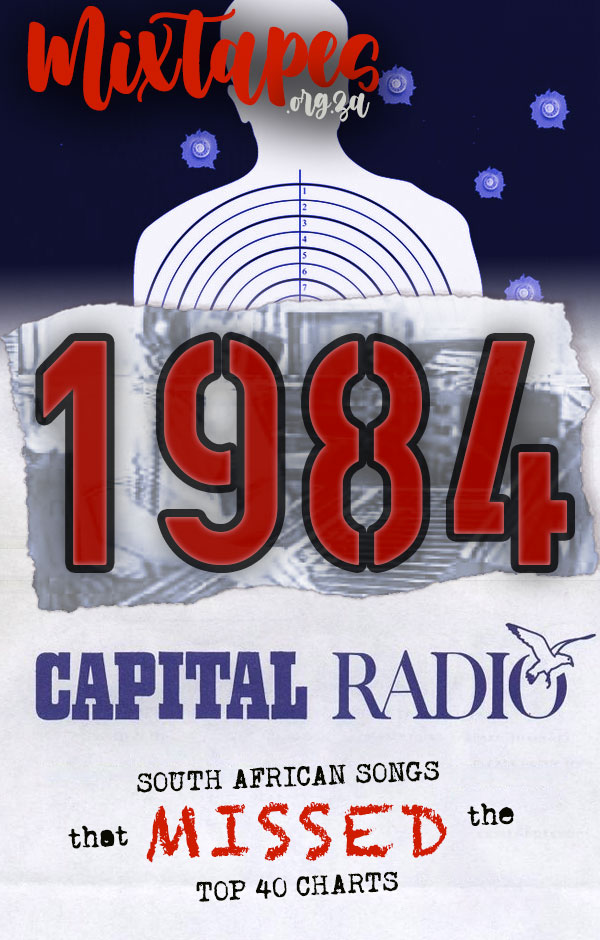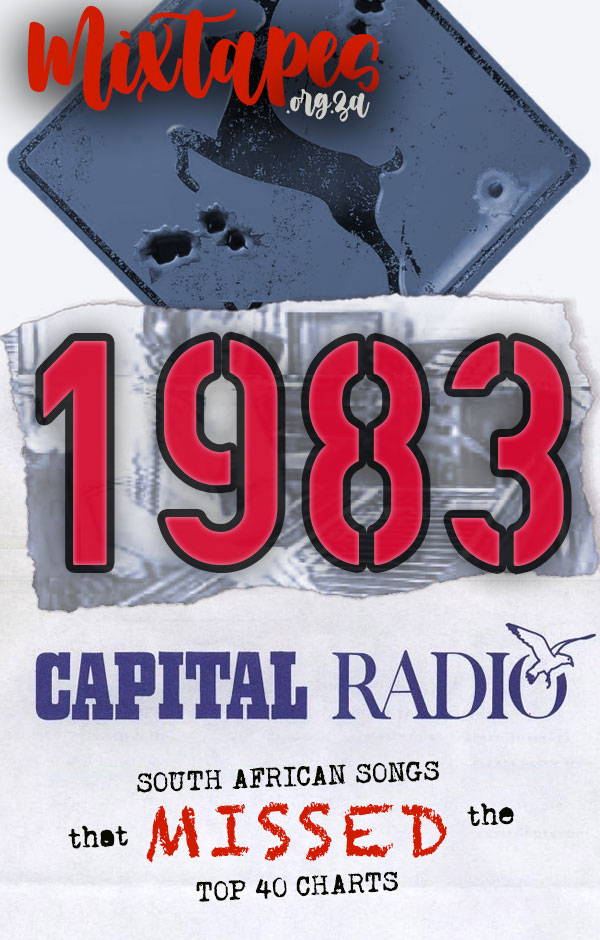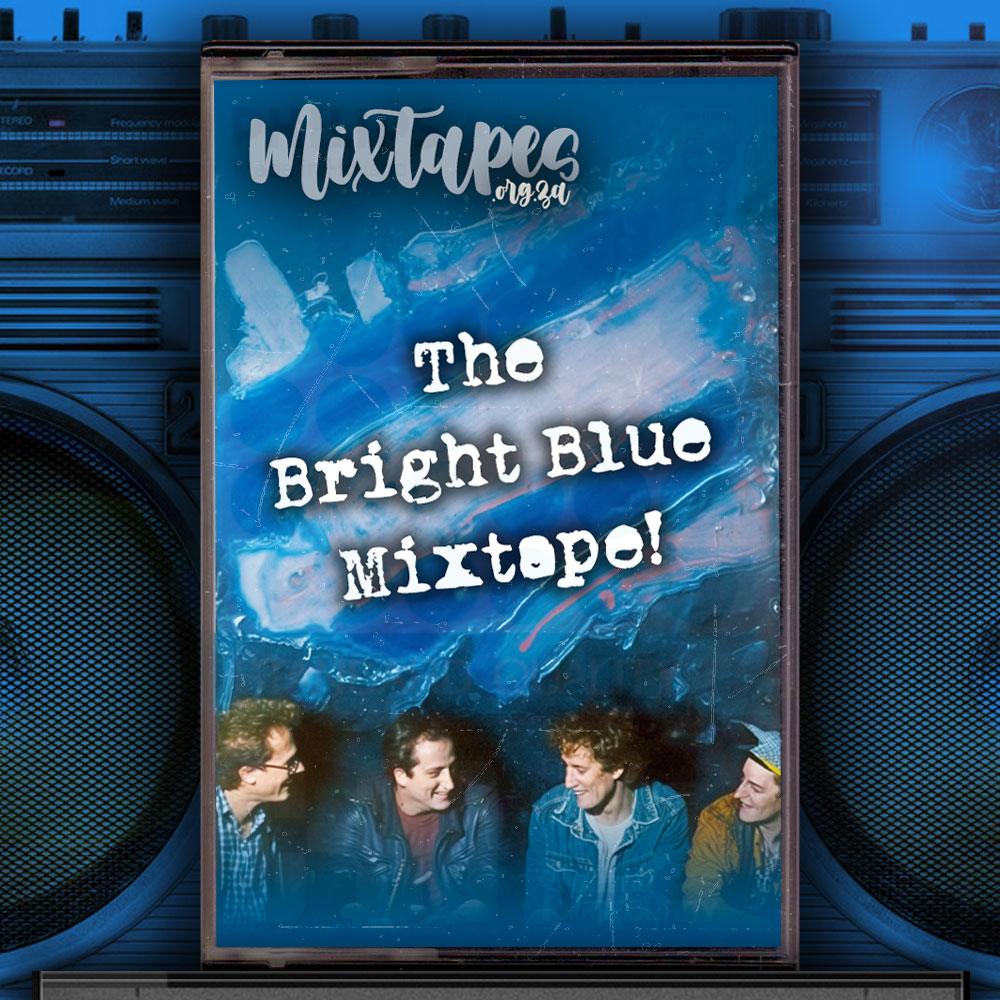
In February this year four members of the original line-up of Bright Blue performed a reunion concert in Scarborough on the Western Cape Peninsula. The sold out show was thoroughly enjoyed by the audience, mostly people who attended their concerts back in the 1980s and 1990s. For many Bright Blue fans, they were more than the group who had hit songs with “Window On The World” and “Weeping”.
When they formed in Cape Town in 1983, Robin Levetan (vocals), Tom Fox (guitar, vocals), Ian Cohen (bass, vocals), Dan Heymann (keyboards) and Peter Cohen (drums) captured the sound and expressed experiences – and sometimes struggles – shared by their mostly young South African fanbase. Most poignantly, through their lyrics they expressed their views about the conscription of white males into the South African Defence Force. Songs like “Window On The World”, “Who Is The Enemy” and the David Bruce tribute song, “The Rising Tide” expressed the sentiments of many of their white male fans. To add to this, Bright Blue often performed on End Conscription Campaign platforms. They occupied a special place in many fans’ hearts. Between the release of their first album, Bright Blue, in 1984, and their second album, The Rising Tide, in 1987, the band’s progress was indeed interrupted by the conscription of some members, and in addition, Levetan left. The four remaining members rose to prominence with the chart-topping success of the anthemic “Weeping”, but the band was soon reduced to three members when Heymann left to live in the USA.
The remaining three members released the 3-song e.p Open Your Eyes in 1996 and then in 2003 (with Dan Heymann) they released the song “Madiba” as a free-to-download single (recorded in 1990). In 2008 the original five members reunited to play at an End Conscription Campaign concert at Spier Estate in the Western Cape. The recent (second) reunion was a long time coming, and unfortunately did not include Dan Heymann, but it marks such an important moment in South African music history that we decided to celebrate the event with a mixtape dedicated to Bright Blue’s music, and the bands’ influences.
We have included several of their songs: “Window On The World” and “Living In Africa” from their first album, with Robin Levetan on vocals; “Weeping” off their second album (featuring Tom Fox on vocals); and further singles, “Wouldn’t Miss It For The World”, “Madiba”, and “World Turns” (again featuring Tom Fox on vocals). We have also included several songs which in some way feature Bright Blue members: “Hungry Child” was written by Robin Levetan to be sung by a combination of musicians at the Operation Hunger Concert In The Park in 1985 (at which Bright Blue were unable to perform); two songs by The Usual (who featured post Bright Blue Tom Fox on guitar): “Like A Vision” and “I Believe You”; two songs off Robin Levetan’s 2010 solo album A Far Country: “You and I” (featuring Dan Heymann on keyboards) and “Perfect Day” (featuring Ian Cohen on bass and Tom Fox on guitar); “Jerusalem” by the Usual’s vocalist James Stewart (written by Dan Heymann and featuring him on keyboards), and “Working Class” by Freshlyground (featuring Peter Cohen on drums).
Interspersed among these songs are ten tracks which Tom Fox listed as songs which reflected the spirit of Bright Blue, politically and musically. In 1999 Tom Fox was asked to compile a list of Bright Blue’s Top 10 anti-apartheid songs for the Cutting Grooves Censorship of Music Exhibition in Grahamstown. In response he submitted a list of tens songs about racism, apartheid and the spirit of South African music. These songs were “Skokokoro” by Condry Ziqubu, “Burn Out” by Sipho Hotstix Mabuse, “Hellfire” by the African Jazz Pioneers, “Bring Him Back Home” by Hugh Masekela, “Isiphiwo” by the Soul Brothers, “African Sky Blue” by Juluka, “Toasted Take Aways” by the Cherry Faced Lurchers, “Mannenberg” by Abdullah Ibrahim, “Kazet” by Mahlathini and the Mohatella Queens, and (the only non-South African track on this mixtape), “Redemption Song” by Bob Marley & The Wailers. Although it must be pointed out that Tom didn’t list particular songs by the African Jazz Pioneer, Mahlathini and the Mohatella Queens, and the Soul Brothers, but simply pointed to their music in general. Appropriately, Basil Coetzee, who performed saxophone on “Mannenberg”, agreed to play the sax on Bright Blue’s “Weeping”, a performance which adds to the anthemic feel of the song.
We hope you enjoy this mix, and we hope Bright Blue meet up for another reunion before too long!
- Window On The World – Bright Blue Featuring Robin Levetan
- Skokokoro – Condry Ziqubu
- Burn Out – Sipho Hotstix Mabuse
- Hellfire – African Jazz Pioneers
- Living In Africa – Bright Blue Featuring Robin Levetan
- Bring Him Back Home – Hugh Masekela
- Isiphiwo – Soul Brothers
- African Sky Blue – Juluka
- Where Would I Go – Bright Blue
- Toasted Take Aways – Cherry Faced Lurchers
- Hungry Child – Concert In The Park Artists (Written By Rob Levetan)
- Weeping – Bright Blue
- Mannenberg – Abdullah Ibrahim
- Kazet – Mahlathini And The Mohatella Queen
- Wouldn’t Miss It For The World – Bright Blue 3rd Line-Up
- Like A Vision – The Usual
- I Believe You – The Usual
- Madiba – Bright Blue
- You And I – Robin Levetan (Featuring Dan Heymann)
- Jerusalem – James Stewart (Written By Dan Heymann, Also On Keyboard)
- Perfect Day – Robin Levetan (Featuring Ian Cohen And Tom Fox)
- Working Class (Or Fire Is Low) – Freshlyground
- World Turns – Bright Blue 3rd Line-Up
- Redemption Song – Bob Marley & The Wailers


